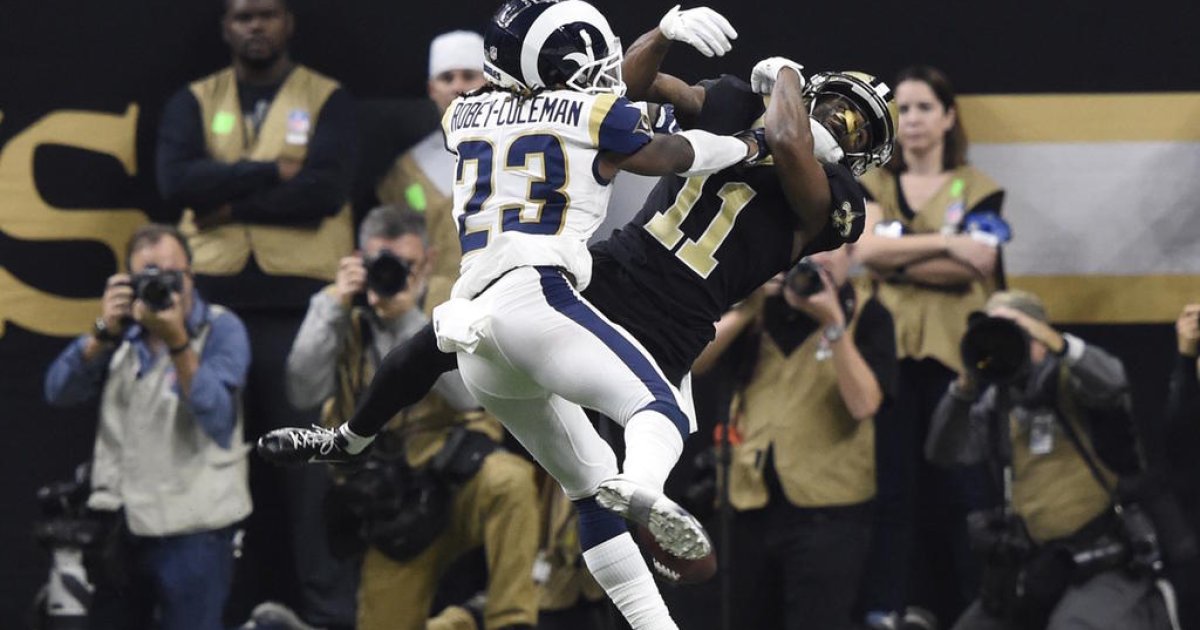Sunday, Feb. 3 marks the Super Duper Bowl between the New England Patriots and the Los Angeles Rams, but much of the talk this week has been about a controversial play in the NFC Championship game Jan. 20 in which the referees failed to call pass interference on Rams cornerback Nickell Robey-Coleman as he collided with New Orleans Saints receiver Tommylee Lewis. (The refs could’ve called helmet-to-helmet, too, which would’ve brought a penalty as well.)
But no, no, and right there I knew that the Rams were going to win the game. Since then, Robey-Coleman has received death threats while the state of Louisiana has protested to NFL Commissioner Roger Goodell and New York Times columnist Frank Bruni has found in the blown call and poor officiating overall in the NFC and AFC Championship games metaphors for Trump’s America.
And yet, perhaps because I was rooting for the Rams, I find it hard to get worked up about this. Even if you assume that the fix was in — some of the referees were from California — there is no way that they could know how the Rams or the Saints would respond. The Rams could still have lost. The Saints could still have won. The only way to fix a game is for a team to throw it for a payoff. (See “Eight Men Out,” John Sayles’ poignant 1988 movie of Eliot Asinof’s 1963 book about the Chicago White Sox, who. conspired with gamblers to throw the 1919 World Series.)
Of course, officiating should be held to a higher standard, and Goodell’s typically tepid we’re-going-to-improve things response would madden anyone. But having spent a lifetime watching sports, I tend to agree with tennis’ Andre Agassi, who once observed that the calls that go against you are balanced by the ones that go for you — and maybe shouldn’t have.
Sometimes you can’t catch a break for trying, but every once and a while you do. That’s sport — and life.
